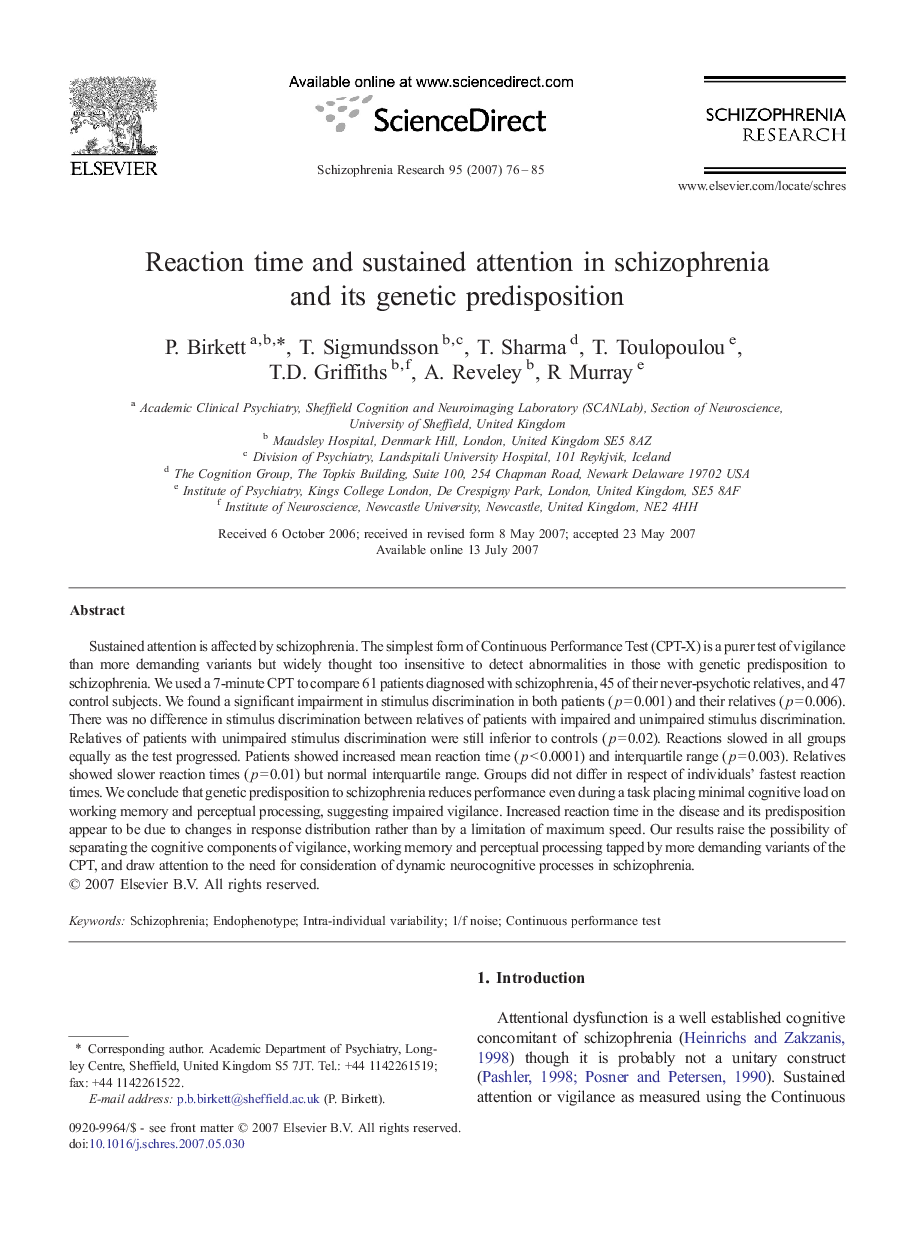| Article ID | Journal | Published Year | Pages | File Type |
|---|---|---|---|---|
| 340104 | Schizophrenia Research | 2007 | 10 Pages |
Sustained attention is affected by schizophrenia. The simplest form of Continuous Performance Test (CPT-X) is a purer test of vigilance than more demanding variants but widely thought too insensitive to detect abnormalities in those with genetic predisposition to schizophrenia. We used a 7-minute CPT to compare 61 patients diagnosed with schizophrenia, 45 of their never-psychotic relatives, and 47 control subjects. We found a significant impairment in stimulus discrimination in both patients (p = 0.001) and their relatives (p = 0.006). There was no difference in stimulus discrimination between relatives of patients with impaired and unimpaired stimulus discrimination. Relatives of patients with unimpaired stimulus discrimination were still inferior to controls (p = 0.02). Reactions slowed in all groups equally as the test progressed. Patients showed increased mean reaction time (p < 0.0001) and interquartile range (p = 0.003). Relatives showed slower reaction times (p = 0.01) but normal interquartile range. Groups did not differ in respect of individuals' fastest reaction times. We conclude that genetic predisposition to schizophrenia reduces performance even during a task placing minimal cognitive load on working memory and perceptual processing, suggesting impaired vigilance. Increased reaction time in the disease and its predisposition appear to be due to changes in response distribution rather than by a limitation of maximum speed. Our results raise the possibility of separating the cognitive components of vigilance, working memory and perceptual processing tapped by more demanding variants of the CPT, and draw attention to the need for consideration of dynamic neurocognitive processes in schizophrenia.
